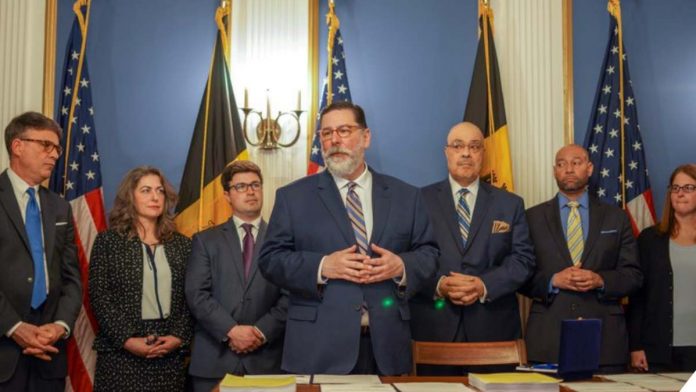
Gun Control Advocates are upset that a judge overturned the city of Pittsburgh’s rules they attempted to implement concerning the AR-15, carrying of firearms in certain public spaces, and Red Flag laws.
Attorneys for the city of Pittsburgh are asking a state court to overturn a judge’s order striking down firearm restrictions approved after a 2018 mass shooting at a synagogue.
The three ordinances were approved in April 2019 following the October 2018 mass shooting at Pittsburgh’s Tree of Life Synagogue that killed 11 worshippers. Gun rights advocates fought the ordinances, and a judge struck down the measures in October, saying Pennsylvania law forbids municipalities from regulating firearms and the ordinances were “void and unenforceable.”
This is what preemption laws are meant to do. They make it so a smaller municipal government cannot make a more restrictive rule than the state implements and you avoid a patchwork of confusing laws. Pennsylvania has 67 Counties, 56 cities, 958 boroughs, 93 first-class townships, 1,454 second-class townships, and one town (Bloomsburg) making for 2,629 municipalities or other sub-state level governmental divisions. Imagine if every one of them restricted the 2nd Amendment in a different manner, that just by leaving your township you became a felon, how fair is that to a citizen exercising a constitutionally enshrined right?
City lawyers argue in briefs filed late last week that neither lawmakers nor the state’s highest court had ever “expressly said or held that cities are completely powerless to act in this area.” They said local governments’ authority to regulate firearms to protect citizens “may be limited, but it is not extinguished.”
Ah, so it depends on what your definition of ‘is’ is. ‘Is’ the restriction or any restriction that Pittsburgh would try to enact in violation of the 2nd Amendment and the laws of Pennsylvania? Oh, almost certainly yes. And with the state having preemption in place, similar to my home state of Michigan, the smaller governmental units cannot slice and dice the state into patchwork legal pizza.
But that didn’t stop Pittsburgh from trying to ride the moral outrage train from the 2018 Tree of Life attack to do just that, even if none of the proposed laws could have altered the attack or the outcome. That seems to be the recurring theme. Tragedy occurs, implement rules that wouldn’t have prevented the tragedy but are in line with your political leanings and repeat on the next tragedy. Be certain to ignore objective analysis of the event that show the vulnerabilities of society to violent outliers no matter what is done in the legal realm.
Laws, ultimately, require voluntary compliance. People choose to obey them. The penalties are there as incentive to obey them. But every example of a mass casualty attack has come from a violent societal (not necessarily socially) outlier for which the penalty of breaking the law holds no sway. These outlier individuals, sometimes groups, will always exist and putting pressure, blame, and penalty on the much larger population as a whole won’t impede them. You cannot leverage someone with something they do not care about, including their freedom or survival.
The rules and societal directives put in place, especially for safety, need to have this rationale in mind during their crafting. Pittsburgh’s is pure political security theater.



